Update (February 2017): All sites are now closed and not recruiting for participants.
If you would like to be added to a waiting list for the Sheffield Support Snood, please contact Lise Sproson.
We are funding, together with the NIHR i4i (National Institute for Heath Research invention for innovation) programme, a research team in Sheffield who have developed a new type of neck support for people living with neck muscle weakness as a result of a neurological condition.
Designers, clinicians and engineers from University of Sheffield, Sheffield Hallam University, Devices for Dignity, Sheffield Teaching Hospital, Barnsley Hospital, and the Sheffield MND Research Advisory Group have worked together with people living with MND to develop the Sheffield Support Snood through an iterative design process.
The results from a small pilot study of the snood were presented at the International Symposium on ALS/MND in Brussels last year, where we reported on it.
Next step – the 100 collars project
In September we attended the Sheffield Support Snood training day, run by Devices for Dignity, Sheffield Teaching Hospitals NHS Foundation Trust, and Dr. Christopher McDermott, a Clinician Scientist at the Sheffield Institute for Translational Neuroscience (SITraN) who is the Chief Investigator for the project .
The training day allowed physiotherapists and occupational therapists from MND care centres to see the collar, receive training on how to put it on, and find out about the 100 collars project.
100 people with MND who experience neck weakness and 50 people who have neck weakness linked to another condition, such as muscular dystrophy or after having a stroke, will test out the latest design of the snood.
How can you take part?
MND Care centres at the following hospitals/locations are participating in the 100 collars project:
- Sheffield
- Oxford Radcliffe
- Walton Centre, Liverpool
- King’s College, London
- Cambridge
- Preston
- Salford Royal Hospital
- Queen Elizabeth University Hospital, Glasgow
- NHS Lothian, Edinburgh
- Beaumont Hospital, Dublin
People who attend one of these centres will be able to speak to someone about this project at their next appointment. Snoods are expected to be available to those taking part from late November 2015.
What does taking part in the project involve?
People taking part will be asked to commit to two visits to their participating centre, one month apart, to complete two questionnaires and have the snood fitted.
Those taking part will initially fill out a questionnaire asking about any collar(s) they currently use and their level of neck weakness.
After one month of using the Sheffield Support Snood, participants will be asked to fill out another questionnaire giving information on how they found the snood, assess the quality of support it gave and how comfortable it was. They can continue using the snood after this trial month if they find it suitable.

Dr Christopher McDermott commented, “We are excited about getting feedback and reaction to the snood from people who were not involved in the design of it or the initial small study. The comments from people who take part in the 100 collars project will be important in helping with the ongoing process of refining the design of the support snood.”
Why not collars for everyone?
The 100 collars project is needed in order to provide potential manufacturers with evidence on if the support snood is a good product and a feasible alternative to collars that are currently available.
It is unlikely a company would take on the license for the product and go on to manufacture it, without it having first been tested in many people.
In the future it is hoped that once a manufacturer is found to take on the snood, it could then be available more widely to anyone with neck weakness, including people who have MND.

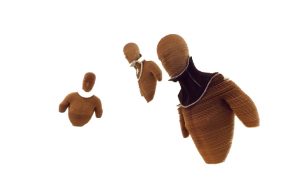
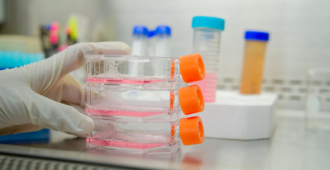
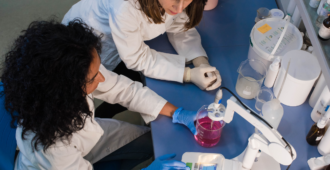
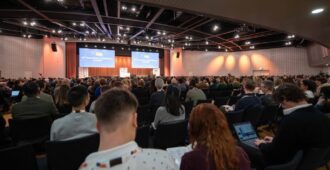
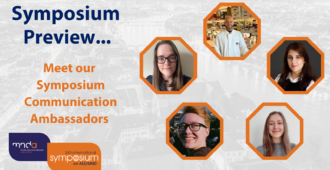
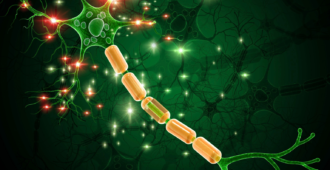
This is a great advance in the fight against ALS. Many of us will develop or has already neck muscle weakness and can benefit from this.
can you please update on how the 100 collars project is going? I hope to be in Scotland in April, moving from Australia, and am very keen to be able to test this product.
Dear Frank,
The 100 Collars project is now up and running in several of the centres mentioned in the article above, and several people are already trialling the support snood. The rest of the centres should begin recruitment in the coming months.
Best wishes,
Sara Bolton
Research Information Co-ordinator, MND Association UK
I hope the Snood trial goes well. My husband has a rare inherited form of MND – Kennedy’s disease – which is has a slow progression, but he is finding difficulty with his neck muscles now and it’s really debilitating. The snood sounds like it could really benefit him and improve his ability to function more fully in everyday life. I look forward to the outcome of the trial and having the opportunity to purchase one for him. We live in Australia so can’t offer to participate in the trial unfortunately.